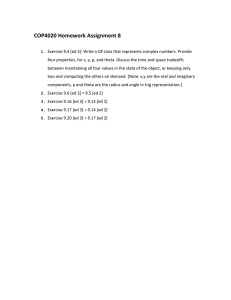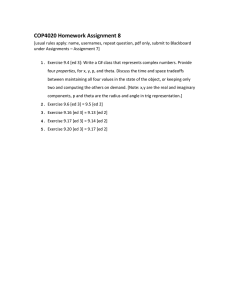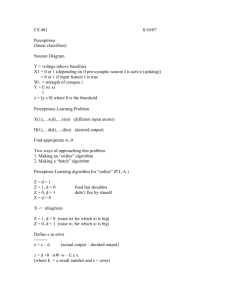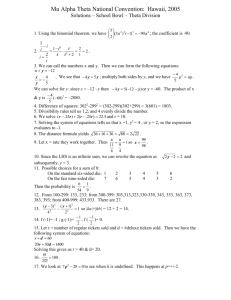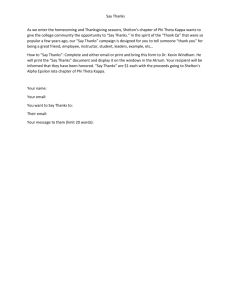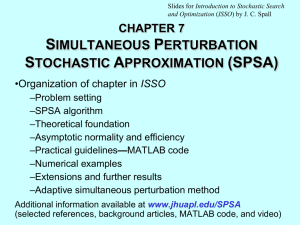Matlab Code – SPSA Algorithm • The
advertisement
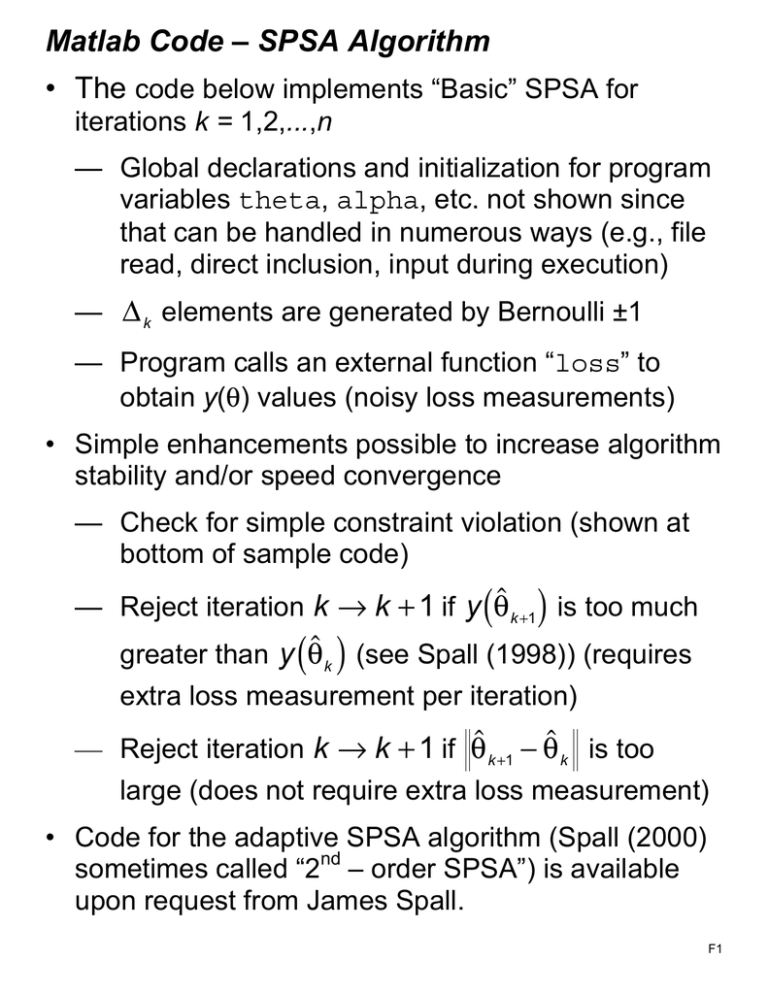
Matlab Code – SPSA Algorithm • The code below implements “Basic” SPSA for iterations k = 1,2,...,n — Global declarations and initialization for program variables theta, alpha, etc. not shown since that can be handled in numerous ways (e.g., file read, direct inclusion, input during execution) — ∆ k elements are generated by Bernoulli ±1 — Program calls an external function “loss” to obtain y(θ) values (noisy loss measurements) • Simple enhancements possible to increase algorithm stability and/or speed convergence — Check for simple constraint violation (shown at bottom of sample code) c h — Reject iteration k → k + 1 if y θ k +1 is too much c h greater than y θ k (see Spall (1998)) (requires extra loss measurement per iteration) — Reject iteration k → k + 1 if θ k +1 − θ k is too large (does not require extra loss measurement) • Code for the adaptive SPSA algorithm (Spall (2000) sometimes called “2nd – order SPSA”) is available upon request from James Spall. F1 Matlab Code (cont’d) Click TXT File button for editable text. for k=0:n-1 ak=a/(k+1+A)^alpha; ck=c/(k+1)^gamma; delta=2*round(rand(p,1))-1; thetaplus=theta+ck*delta; thetaminus=theta-ck*delta; yplus=loss(thetaplus); yminus=loss(thetaminus); ghat=(yplus-yminus)./(2*ck*delta); theta=theta-ak*ghat; end theta If maximum and minimum values on the values of theta can be specified, say thetamax and thetamin, then the following two lines can be added below the theta update line to impose the constraints theta=min(theta,thetamax); theta=max(theta,thetamin); Note: The MATLAB feval operation (not used above) is useful in yplus and yminus evaluations to allow for easy change of loss function. F2
